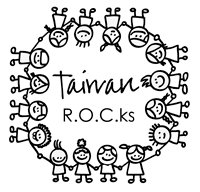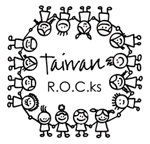The following was written and shared with us by William's mother Judy. Judy blogs at Anatomy of a Family.
Should Know Better
Consider this: a few years ago, a friend told me about a situation at his workplace involving one of his employees. She had come to him complaining about her salary, feeling she was owed more for the effort she had put forth. Eventually, she tendered her resignation, claiming she had been the victim of gender and racial discrimination. However, as my friend told it, her history of performance simply didn't rival that of her higher paid co-workers. Try as he did, he could not think of an instance in which he might have spoken to or treated her in a demeaning way. The employee herself failed to offer up any specific examples of bias on his part.
While I can’t assume to know what happened - after all, we’re all flawed individuals capable of anything and everything - I was upset when I heard the story. The idea that my friend might discriminate in such ways made me want to shake my head in disbelief. In the 15 years that I have known him, he has gone out of his way to treat women equitably and honorably. His circle of friends includes many people of different ethnicities. His family circle includes a child adopted from Asia. Of all the people to accuse of gender or racial discrimination, he would be the last person who’d come to mind.
My incredulity skyrocketed when my friend mentioned that the employee is Asian-American. That a person of Asian heritage would lodge such loaded charges and be guilty of lackluster performance, as my friend told it, stunned me. “She should know better!” I wanted to protest. True, faultless job execution and relentless work ethics aren’t virtues unique to Asians alone. However, they are qualities towards which many of them are raised to aspire. And it’s quite true that Asians can sometimes be the worst at speaking up for themselves when wronged, perhaps fearing they’ll rock the Confucian all-for-one, one-for-all boat. But to levy such loaded and (presumably) empty charges smacked of a degree of entitlement and a lack of self-awareness that I – and no doubt other Asians – would consider embarrassing to the race as a whole.
Then, my friend happened to mention something: the employee in question was trans-racially adopted. Suddenly, a light went off in my head. Aha! All made sense now. The woman didn't have traditional Asian parents to inculcate the ages-old lessons in her. Her non-Asian parents probably never smacked her across the mouth the one time she dared to talk back to them, didn’t guilt her with stories of how they shared a ball of rice between them each night to pay for her school tuition, didn’t raise her to cringe when she read stories like this because she knew that this would inevitably ensue.
Her adoptive status suddenly exonerated her from hypocritical expectations I didn't realize I had held of Asians up until that point. I suddenly became aware of a double standard at work in my heart. For many years I have bemoaned the fact that many non-Asians expect me to speak fluent Mandarin and read the language, to be an expert on Chinese and Taiwanese culture, to be a demure and passive female with bound feet, or to be a 10th degree black belt in karate with a sixth sense. And yet, despite my own list of grievances, I found myself demanding that this woman be “Asian” in ways that I had personally defined. Shame on me! If others’ stereotyped expectations bother me as much as they do, I should have had enough sense to recognize the same faulty thinking at work in myself. I should know firsthand the yearning to live a life free of the mantle of race and its concomitant associations, to simply be human. I should have known better.
Sadly, I’m aware that I’m not the only Asian person in the world guilty of this hypocrisy. My own self-deception makes me wonder how my two boys will fare as they face a lifetime of interactions with other Asians. Will some of those Asians be their harshest critics? Or have times truly changed? Perhaps today’s kids more accepting. Even if they are, I don’t for a moment pretend to think that my older, biological son is exempt from racial expectations since he is Eurasian. Being biracial can come with its own particular set of obstacles. But for my younger son, adopted from Taiwan, I foresee potential challenges already. The world is a hard enough place for adoptees, particularly internationally adopted ones who may feel out of place in both their adoptive countries and their native lands. They don’t need people of their own heritage, the same people who should be the most supportive of them, to offer further resistance, either inwardly felt or outwardly expressed.
The possibility of such adversity has been weighing on my mind as my husband and I consider schooling decisions for our two boys. Andrew, our 7 year-old son, now attends a small private Christian school with strong academics and a diverse student body. Minority students form the 60% majority of his grade. His friends are Latino, Caucasian, and African-American. Unfortunately, there are very few Asians in his school. It’s a regrettable statistic, but I’m not overly concerned. As an introvert who thrives in smaller crowds, whose life doesn’t revolved around athletics, and whose partial heritage is substantially represented by the school’s 40% Caucasian population, Andrew would probably be well-served by staying there.
But enter 3 year-old William. Social William. Athletic William. Bright William. Adopted William. So much of the school district to which we’ve recently moved seems to be a good fit for him. True, he would lose out on the quality Christian education and the diversity that attracted us to Andrew’s school. But the impact of the district’s almost 8% Asian student population (higher than the 4.8% Asian population in all of America according to the 2010 census) cannot be overlooked. I can’t help but wonder what being surrounded by other children of Asian descent might do for him.
Having been shuttled in and out of various public and private schools in which I and sometimes another student comprised the entire Asian population, I know firsthand the strain of being the odd one out. It’s speculative, of course, but perhaps my 13 year-old self might have been more at ease with the looks God saw fit to give me. Perhaps I wouldn’t have stood before the mirror pulling wide the ends of my eyes and tugging at the tip of my nose, wondering if I’d be more attractive if my features were more traditionally Western. For William, for whom the world suggests at every turn that he’s less valid, just not the same because he is adopted, looking like many of the kids around him could have a powerful effect.
Or, it might not.
Whether you are already home with your child(ren) from Taiwan, waiting for your child(ren) to come home from Taiwan, or awaiting a referral from Taiwan, you're in the right place!!!
TAIWAN R.O.C.ks was a dream in 2010, and a reality in 2011! In 2010, Jules left a comment on Lisa C.'s blog, which Tiffanie responded to, which turned into an e-mail chain with the addition of Lisa R. That e-mail chain was all about a reunion for Taiwan families. Four blogging Mamas who each have a child born in Taiwan turned that circle of comments and e-mails into this. . .TAIWAN R.O.C.ks (Reuniting Our Children for Kinship and Support).
If you missed the first event, be sure not to miss the SECOND ANNUAL TAIWAN R.O.C.ks Event!!! Hope to see you there. Mark your calendars!
July 27th-29th, 2012 in CHICAGO!!
Your Taiwan R.O.C.ks Team,
Lisa C. (Tyler's Mom) - 2012 Team Lead
Jules (Hayden's Mom)
Lisa R. (Paige's Mom)
Tiffanie (Gracyn's Mom)
TAIWAN R.O.C.ks was a dream in 2010, and a reality in 2011! In 2010, Jules left a comment on Lisa C.'s blog, which Tiffanie responded to, which turned into an e-mail chain with the addition of Lisa R. That e-mail chain was all about a reunion for Taiwan families. Four blogging Mamas who each have a child born in Taiwan turned that circle of comments and e-mails into this. . .TAIWAN R.O.C.ks (Reuniting Our Children for Kinship and Support).
If you missed the first event, be sure not to miss the SECOND ANNUAL TAIWAN R.O.C.ks Event!!! Hope to see you there. Mark your calendars!
July 27th-29th, 2012 in CHICAGO!!
Your Taiwan R.O.C.ks Team,
Lisa C. (Tyler's Mom) - 2012 Team Lead
Jules (Hayden's Mom)
Lisa R. (Paige's Mom)
Tiffanie (Gracyn's Mom)
Friday, April 29, 2011
Subscribe to:
Post Comments (Atom)







you write wonderfully and have given much to think about. can't wait for part 2
ReplyDelete